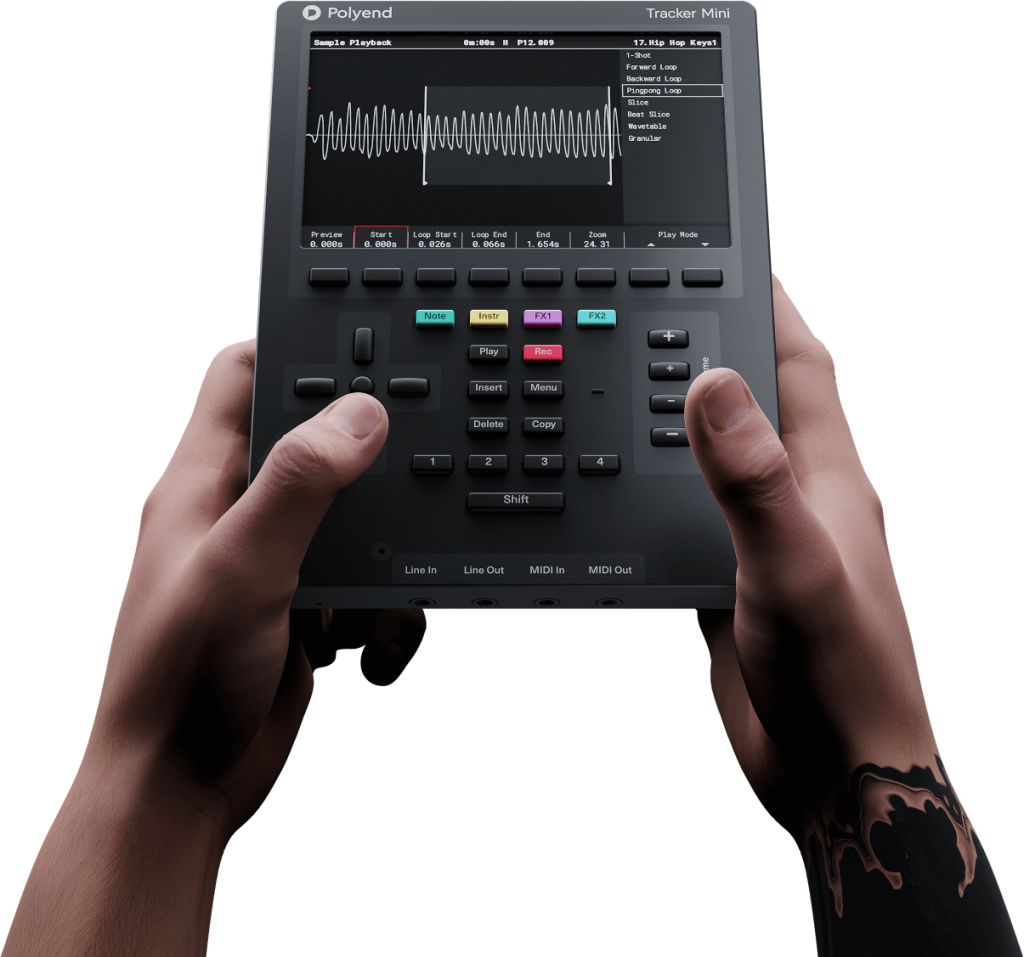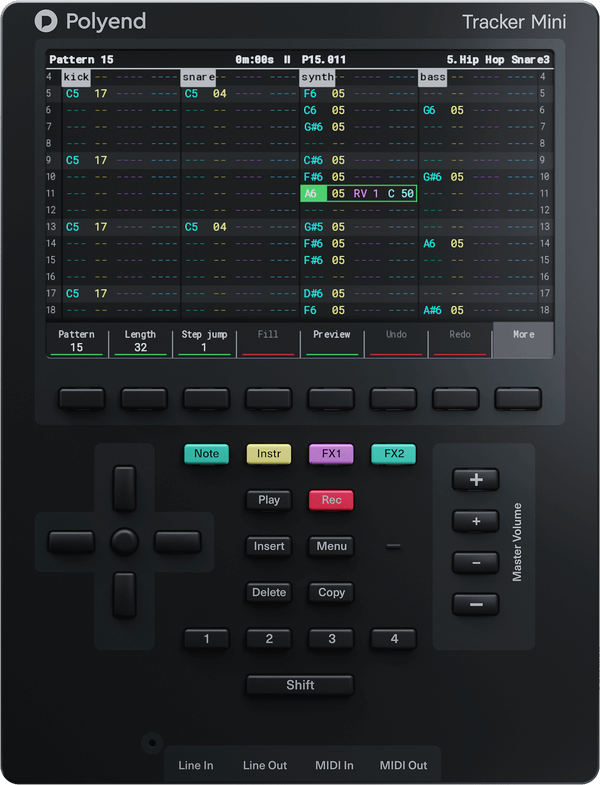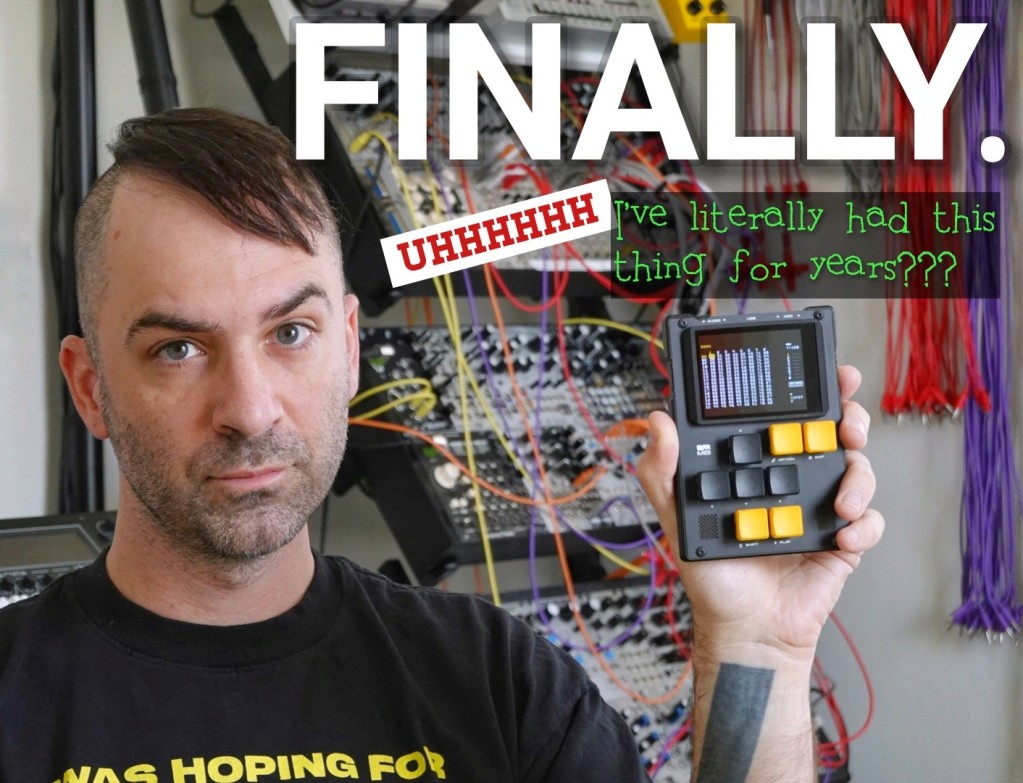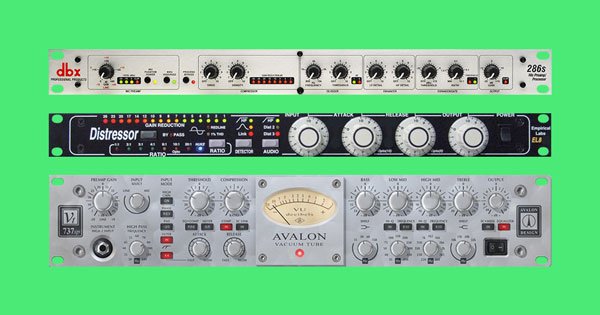As they promised, Polyend has made a handheld follow-up to their standalone Tracker hardware. It’s now in a handheld form factor, and includes enhancements to the original model.
And you know what this means: it’s on. M8 and Tracker fans / Dirtywave vs. Polyend, fight!
Uh, unless what you really prefer is Polyend Play or you’ve got a tracker on another portable or PC and then naturally you could really care less. (Tools don’t matter, maybe? Really: I can shred / sound awful on anything.)
Meanwhile: the Tracker Mini is simply gorgeous, with nods to high-end early-digital gear. (It almost looks like a Frog prototype for Apple.) I won’t get my hands on it for a couple more weeks, but they also promise high-quality buttons. And it really is a handheld, giving you the ability to hold the device the way chip artists have held Game Boys – albeit with roomy control layout and a spacious screen. (Lightweight 2020s tech beats 1990s tech.) There’s a travel case included, too, as a nice touch.

Polyend is quick to stress that this isn’t just a Tracker in a different form factor, but incorporates user-requested improvements:
- More headroom (improved signal pack)
- 4x sampling capacity
- Stereo sampling
- Built-in microphone
- Internal battery
- Audio over USB
- USB MIDI

The sampling features I suspect are what will tip the scales to the Mini from the original Tracker for a lot of folks – internal mic is a must on a portable, and then stereo sampling and expanded capacity make a big difference.
Expanded USB audio and MIDI support is a big deal, too, workflow-wise, because now you can record directly onto your laptop. (The original Tracker has USB-C but for power only.) Those seem even more important on a desktop unit, though, so let’s see if they migrate to the full-sized Tracker at some point.
Other than that, you get the same features that made the original Tracker a hit, condensed to game-style inputs. You do shed some of what the OG Tracker provides: the Mini has no backlit input pads, no jog wheel, and no FM radio (even if that last one is… a little odd).
There’s a wrinkle here, though. The Tracker is about the same price as the original (US$699 for Mini Tracker). So there’s a tradeoff here between extra controls and space and availability right now, and stereo sampling plus portability plus USB connectivity.
This also puts the Polyend at roughly at the same price as Dirtywave’s M8 Tracker. Dirtywave or Polyend, you’re waiting either way if you’re trying to buy now: both devices are in preorder mode with shipping expected in July.
https://polyend.com/tracker-mini/
An M8 – Mini Tracker shootout seems what’s in store. (I’m also curious about the clock issues described by some commenters online; I haven’t had either unit in-hand for any period myself.) I do know people who really swear by the
Of course, you can always install Nanoloop or LSDJ on a Game Boy for the price of a small handful of USB-C cables, though with slightly more basic hardware and display. (Well, it has its charm.) And there’s SunVox on … sort of anything. Just in case you’re hit hard with this economic downturn and that price tag is out of reach. So M8/Mini Tracker review aside, I think we better do a dirt cheap tracker guide soon, too.
Addendum:
While I fantasize about someone giving me a PocketPC to save from the dumpster so I can run SunVox on it, the Internet is apparently getting spicy:

Seriously, if you’ve got some weird Windows handheld, I’ll send you a shipping label and we can do this thing. Also definitely time to clean off my transparent Game Boy and Nanoloop. Even if, as I mentioned, I’m awful.
Comments from the peanut gallery? You know where to write them.



